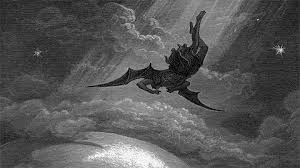The Chaos Seekers

Thomas Edsall writes about what looks like a very interesting paper regarding a key factor in Donald Trump’s takeover of the Republican party:
Over the four years during which he has dominated American political life, nearly three of them as president, Donald Trump has set a match again and again to chaos-inducing issues like racial hostility, authoritarianism and white identity politics.
Last week, at the annual meeting of the American Political Science Association, the winner of the best paper award in the Political Psychology division was “A ‘Need for Chaos’ and the Sharing of Hostile Political Rumors in Advanced Democracies.”
The paper, which the award panel commended for its “ambitious scope, rigor, and creativity,” is the work of Michael Bang Petersen and Mathias Osmundsen, both political scientists at Aarhus University in Denmark, and Kevin Arceneaux, a political scientist at Temple.
It argues that a segment of the American electorate that was once peripheral is drawn to “chaos incitement” and that this segment has gained decisive influence through the rise of social media.“The rise of social media provides the public with unprecedented power to craft and share new information with each other,” they write. In the political arena, this technological transformation allows the transmission of a type of information that portrays “political candidates or groups negatively” and has “a low evidential basis.” The “new information” transmitted on social media includes “conspiracy theories, fake news, discussions of political scandals and negative campaigns.”
The circulation of this type of information (which the authors label “hostile political rumors”) has been “linked to large-scale political outcomes within recent years such as the 2016 U.S. presidential election.”On a less cataclysmic level, the authors’ analysis helps explain the intensity of anti-establishment voting that drove Trump’s successful takeover of the Republican Party in the 2016 primaries.
The authors describe “chaos incitement” as a “strategy of last resort by marginalized status-seekers,” willing to adopt disruptive tactics. Trump, in turn, has consistently sought to strengthen the perception that America is in chaos, a perception that has enhanced his support while seeming to reinforce his claim that his predecessors, especially President Barack Obama, were failures.
Petersen, Osmundsen and Arceneaux find that those who meet their definition of having a “need for chaos” express that need by willingly spreading disinformation. Their goal is not to advance their own ideology but to undermine political elites, left and right, and to “mobilize others against politicians in general.” These disrupters do not “share rumors because they believe them to be true. For the core group, hostile political rumors are simply a tool to create havoc.”
A couple observations:
(1) Trump’s support is drawn from several groups, whose members often belong to more than one of these categories:
*White nationalists
*Alienated burn it all down anti-establishment types (these are paradigmatic chaos inciters).
*Religious conservatives, overwhelmingly white evangelicals, who see Trump — depending on their level of absorption into the cult — as either a necessary evil that must be accepted to stop the politically correct coastal secularist trans gay elite takeover of America, or a messianic figure, whose apparent total personal decadence is just part of the Mystical Nature of the Divine Plan, which ever confounds the heathens.
*Upper class Republicans who want big tax cuts and fewer regulations on their money-making activities.
*Low information voters who always vote Republican out of tribal habit. These people — I’ve spoken with a few recently — have the most fantastical ideas about Trump, such as for example that he’s a “successful businessman,” rather than a “politician,” which is why he manages to “get things done.”
(Whenever I read a story about the current goings-on in British politics, I consider that what I know about that political system — i.e., almost nothing — is still more than a huge percentage of American voters know about the American political system.)
To the extent this typology is accurate, it suggests that some Trump supporters are, to coin a phrase, a lot more deplorable than others, although all of them are engaging in morally deplorable behavior, by continuing to support this grotesque train wreck of a human or human-like being.
The implications of that, in turn, are significant in regard to putting the country back together again, after Trump and everything he represents have been, to the extent possible, extirpated from the body politic, or at least driven back into the shadows where white nationalism etc. formerly lurked.
(2) The people who are prone to chaos incitement aren’t all on the right (The authors found such people were also drawn to Bernie Sanders, although they were more likely to be drawn to Trump).
Here I think it’s important to avoid a no true Scotsman response, that I see a from time to time made by LGM commenters, in which Chapo types etc. are dismissed with scare quotes as so-called “leftists.” The extreme version of this response denies that you can a racist or a misogynist or a paranoid conspiracy monger and still be part of the left. This in a way echoes the rhetoric of purity leftists, who slap the label neo-liberal on anyone to the right of Noam Chomsky.
I think it’s better to accept that any mass political movement has to include a lot of people who are going to be objectionable to other people in the movement, for both good and bad reasons. How to handle that reality in manner that’s both pragmatically effective and morally defensible is always going to be a difficult needle to thread.


